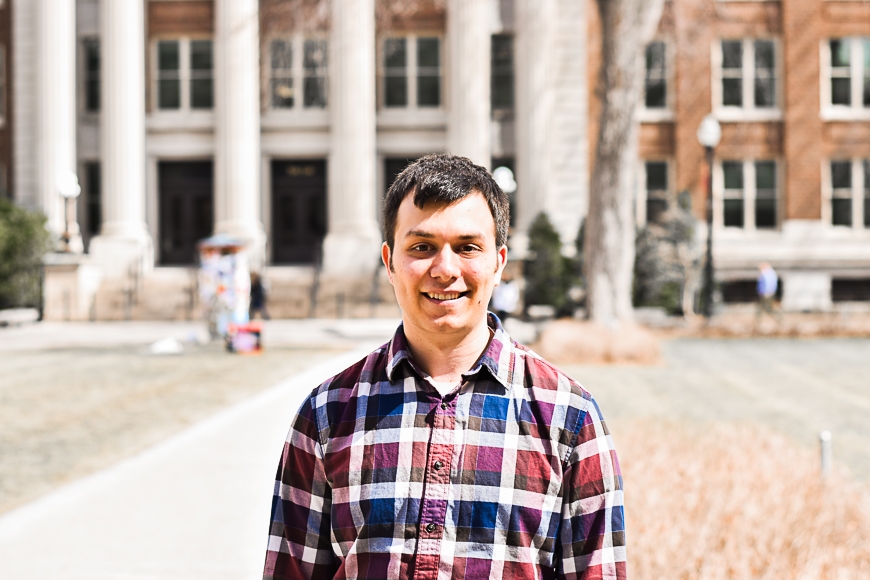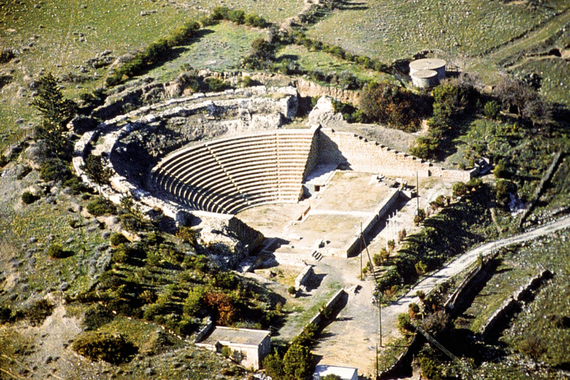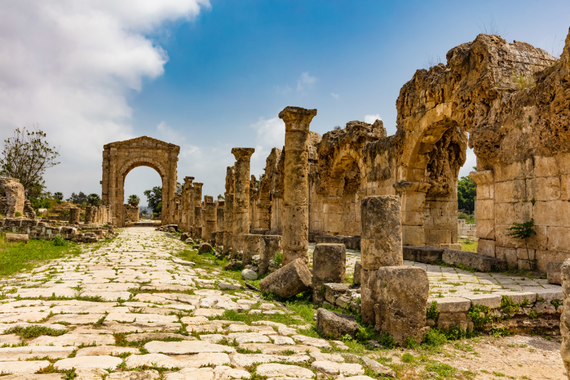Solving the Puzzle of Language
Where can a fascination with language puzzles and the ancient world lead you? In 2018, Classical and Near Eastern studies (CNES) PhD Student Jeffrey Cross won the Canadian Society of Biblical Studies’ (CSBS) prestigious Jeremias Prize for his paper on identifying ancient magical amulets.
Desiring to explore the religions of the ancient world in a broader context, the choice of coming to the University of Minnesota for his master’s and PhD was an easy decision for Cross. Unlike other universities, the UMN combines classics and Near Eastern studies into one department rather than keeping them separate. “It was exactly what I was looking for,” Cross states.
Award-Winning Work
The Jeremias Prize is awarded to students whose academic paper submission exhibits exceptional research ability and scholarly potential. Cross exceeded his own expectations and as a recipient of the award, he presented his paper at CSBS’s annual national conference. Although ecstatic about winning the award, Cross says the real prize was the experience of sharing his work at a conference for the first time. “It was great getting to interact with the other presenters on a peer level; it’s more rewarding than when you're just there as a spectator.”
This formative experience is the most recent in a series of exciting opportunities for Cross during his time at the UMN. Another highlight included being awarded a Graduate Research Partnership Program Grant (GRPP) to conduct research for a project on ancient papyrus documents abroad in the Bodleian Library at the University of Oxford during the summer of 2016. “When you're actually there to check something out and research with it, it's much more fun than simply seeing the sights as a tourist,” he explains.
The Benefits of Biblical Studies
Not only is Cross able to explore a spectrum of his interests in CNES, but he has also found enjoyment in teaching and working within this tight-knit department.
Cross notes how devoted the CNES faculty is to giving guidance to students of all levels. He greatly appreciates their willingness to give constructive criticism or being available to bounce ideas off of and give input. These types of interactions have served as extremely useful for Cross outside of the classroom.
Cross is also grateful for the teaching opportunities with CNES such as instructing beginning Latin and serving as a teaching assistant for classes such as Greek and Roman Mythology. “I love the enthusiasm of the students and I try to instill my own enthusiasm for the subject in them,” he says. “We can solve the puzzle of language together.”
Even for students majoring outside of CNES, Cross believes there are many perks of studying the ancient world and its texts. The discipline provides many opportunities for students to develop skills distinctive to a liberal arts education, such as effective oral and written communication, formulating persuasive arguments, and a holistic understanding of how to think critically about the world.
In addition, he explains that when you engage in the history and languages of contemporary or ancient cultures you gain a greater degree of empathy for diverse populations. “You might treat other people with greater respect and appreciate the problems that other people go through, both in our own society and abroad.”
This story was written by an undergraduate student in CLA.



